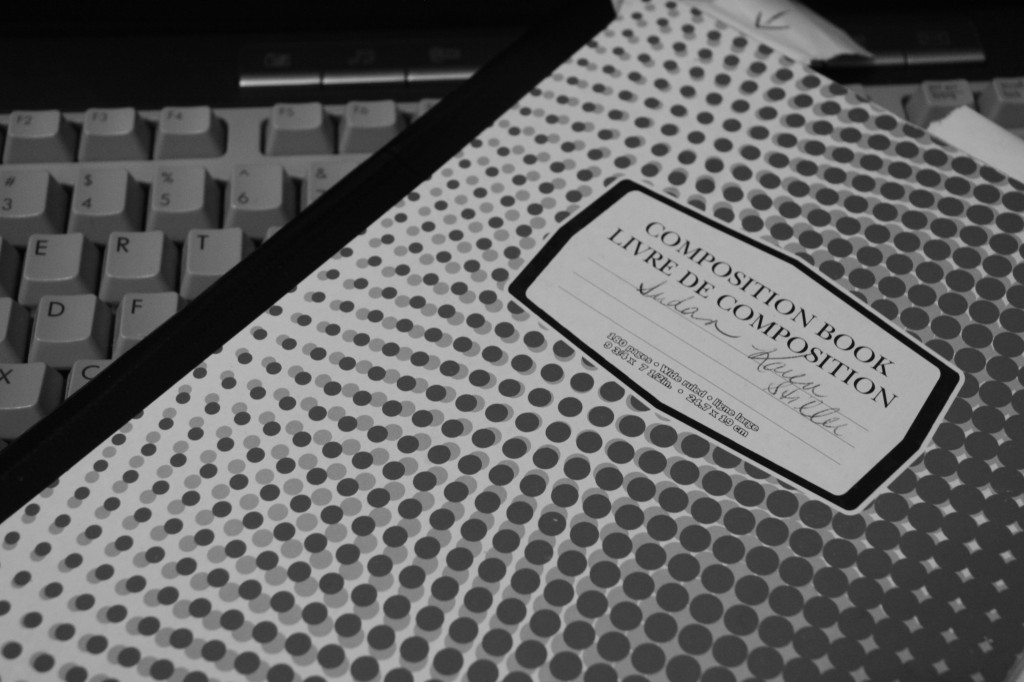I believe that my last story on my May trip to visit South Sudan refugee camps has been published. But I’m sure that trip will continue to feed my writing in the days ahead. I recently thumbed through my notes from the trip, captured in a “Composition Book” from a dollar store. Pages and pages full of impressions, interviews and ideas for how I might frame the stories when I returned home.
The first page of my notebook has questions that I wrote in the Toronto airport terminal while I waited to meet the rest of the team. “What is the potential impact of the U.S. and China on this situation?” “Is a special relationship with Khartoum in the best interests of South Sudan?” “What are the limitations of international influence over Sudan?” I was getting very CNN-ish as I sat there waiting for the red-eye to Heathrow.
They were the wrong questions, at least for the stories I would end up writing. In fact, I don’t think I asked a single one of those questions. Instead, I ended up asking things like: “What is life like here in the refugee camp?” and “How far did you walk?” and “Where are your children?” The one answer I think I will always remember was a young teenage girl who said: “I don’t know why the people fight. I just find myself inside the fighting.”
For me as a mother and a human being, the trip was wrenching. As a writer, I can admit it was one of the most exciting and challenging writing exercises I have ever been given. To go with the task of bearing witness was an incredible gift. And then to try to write the stories with dignity and respect to the people I met, who had lives like mine they were forced to leave behind — without falling into clichés about suffering — was not easy. I don’t know if I accomplished that or not. But it was a privilege to try.
United Church Observer story, read here.
Anglican Planet Story, read here.
Faith Today Story, read here.
Focus on Scugog, read here.
Marantha News, read here.
posted Nov. 1, 2012

